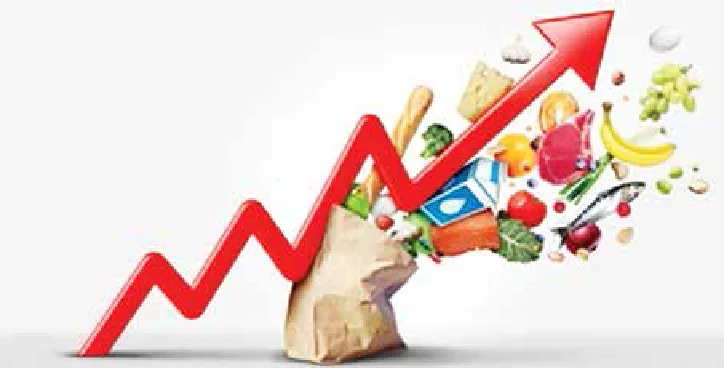Nigeria’s inflation rate is forecasted to decline to 27.1% by December 2025, according to the latest NESG-Stanbic IBTC Business Confidence Monitor (BCM) report.
This prediction offers a glimmer of hope for both businesses and consumers who have been grappling with prolonged economic challenges. The report suggests that structural reforms are finally starting to pay off, although many challenges persist.
Join our WhatsApp ChannelEconomic Pressures and Structural Reforms driving inflation
The inflation rate remains a significant concern in Nigeria, driven largely by rising fuel costs and the depreciation of the naira.
The report highlights that these inflationary pressures were particularly severe in 2024, following the removal of fuel subsidies and the liberalisation of the foreign exchange market. However, the BCM expects these pressures to gradually ease in 2025, with a significant decline anticipated by the fourth quarter.
Predictions for 2025 Inflation Trends
The report forecasts, “We expect headline inflation to remain sticky in 9M:25 but settle below 30.0 per cent from September 2025 as high petrol cost gets smoothened out of the year-on-year headline inflation, barring any unexpected negative shocks to petrol prices.”
This projection is based on several factors, including expectations for the USD/NGN exchange rate, fiscal deficits, and food supplies. The report anticipates that headline inflation will average 30.5% year-on-year in 2025 and settle at 27.1% by December 2025.
Impact on Monetary Policy
The anticipated easing of inflation is expected to influence Nigeria’s monetary policy. The report indicates that the Central Bank of Nigeria’s Monetary Policy Committee may adopt a more accommodative stance in late 2025, potentially reducing interest rates to stimulate economic activity.
READ ALSO: Inflation, MPR To Decline In 2025- Experts Predicts
Current Business Performance and Sector Analysis
Business performance in December 2024 saw a slight recovery, largely due to festive season demand. The Current Business Performance Index rose to +0.77, marking an improvement from -2.74 in November. This was the first positive reading since September 2024, signalling a modest boost in business activity.
However, performance varied across sectors. Agriculture emerged as the top-performing sector with a net balance of +13.93, driven by harvest activities and increased demand for produce. Non-manufacturing industries showed resilience, recording a net balance of +5.80. In contrast, the manufacturing, trade, and services sectors faced significant hurdles.
Future Business Expectations
The Future Business Expectation Index, which reflects optimism about future business conditions, settled at +28.61 in December 2024, down slightly from +33.17 in November.
Despite the decline, the index still indicates cautious optimism among businesses, especially in agriculture, manufacturing, and non-manufacturing sectors for improved conditions in the first quarter of 2025.
Challenges Facing Businesses amid inflation
Despite the positive outlook, businesses continue to face significant challenges, including high operational costs driven by inflation and exchange rate fluctuations.
Frequent power outages force many firms to rely on costly alternative energy sources. Insecurity, limited access to financing, and complex tax regulations further exacerbate the difficulties.
Access to Credit and Structural Challenges
Although there was a slight improvement in access to credit in December, with a net balance of +8.25, the high cost of borrowing remains a barrier to investment.
The report also highlights persistent structural challenges, with the Cost of Doing Business Index surging by +50.32 in December, indicating mounting pressures on firms.
Economic Growth Outlook
Despite these challenges, the report offers a cautiously optimistic outlook for Nigeria’s economic growth in 2025. The GDP is projected to grow by 3.5% in 2025, up from an estimated 3.2% in 2024.
This growth is expected to be driven by improved conditions in key sectors such as agriculture, manufacturing, and non-manufacturing industries. The easing of inflation and the stabilisation of exchange rates are anticipated to bolster consumer spending and economic activity.
Emmanuel Ochayi is a journalist. He is a graduate of the University of Lagos, School of first choice and the nations pride. Emmanuel is keen on exploring writing angles in different areas, including Business, climate change, politics, Education, and others.



















Follow Us